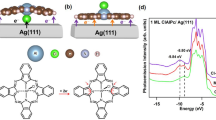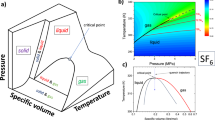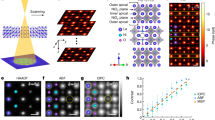Abstract
IN his studies on the polarisation of scattered radiations, Bhagavantam,1 besides recording numerous cases in which the displaced lines in the spectrum of the light transversely scattered by liquids exhibit complete depolarisation, also discovered in the case of sulphur trioxide liquid an anomalously polarised line. The depolarisation of this line exceeded unity; in other words, the horizontal component, instead of being weaker, as in normally polarised lines, was actually stronger than the vertical component. Critical and systematic investigations undertaken by S. Venkateswaran definitely confirm the existence of such anomalous polarisation in the spectra of light-scattering by various organic liquids, and indicate that it is by no means an unusual phenomenon.
This is a preview of subscription content, access via your institution
Access options
Subscribe to this journal
Receive 51 print issues and online access
$199.00 per year
only $3.90 per issue
Buy this article
- Purchase on SpringerLink
- Instant access to full article PDF
Prices may be subject to local taxes which are calculated during checkout
Similar content being viewed by others
References
Ind. Jour. Phys., 5, 59 and 603; 1930.
Author information
Authors and Affiliations
Rights and permissions
About this article
Cite this article
RAMAN, C. Atoms and Molecules as Fitzgerald Oscillators. Nature 128, 795 (1931). https://doi.org/10.1038/128795a0
Issue date:
DOI: https://doi.org/10.1038/128795a0
This article is cited by
-
Atóms and Molecules as Fitzǵerald Oscillators
Nature (1932)



